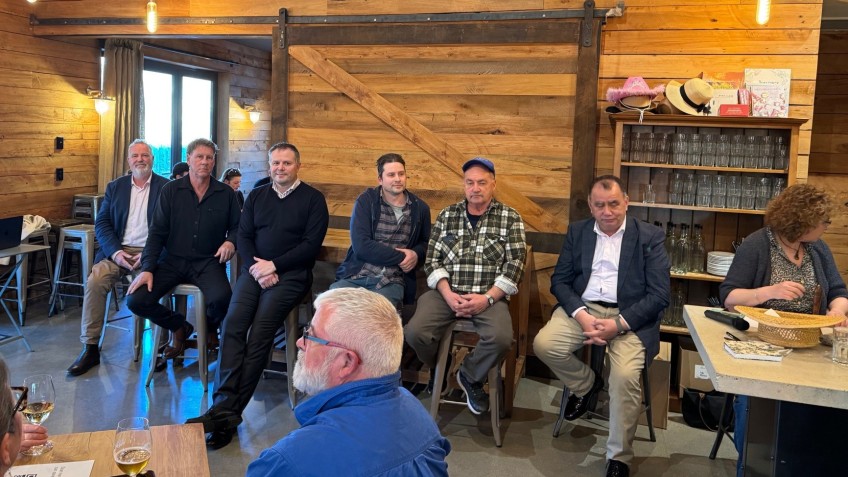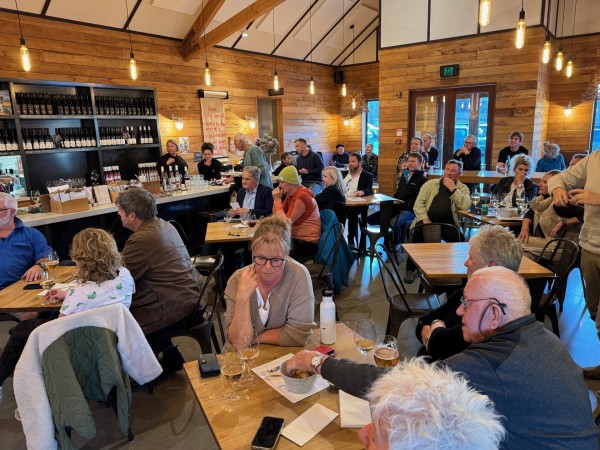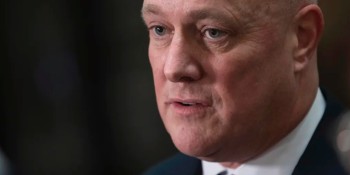Exchange over iwi water rights cut short at election debate


The Mount Rosa winery in Gibbston Valley hosted the final public meeting for local body candidates this week, a meeting with more intensity than other campaign debates during this election.
The agenda reflected many concerns pertaining to the Gibbston Valley community; renewal of water rights, protection of the area’s special character from unbridled growth, pest control, and traffic congestion enroute to Frankton and Queenstown.
The perennial topic of rates, from both Queenstown-Lakes District Council and Otago Regional Council, was raised again, which is unsurprising given the extent of rate increases.
The Ministry of Education’s plan to end school bus runs also came under fire when a question from the floor broached the dilemma faced by families whose children don’t all attend the same school. The dilemma being, which child do they decide will have to be late for school as parents have insufficient time to drive each child to their specific school while on their way to work.
The 13 candidates who lined up in the Mount Rosa Winery on Wednesday were vying for positions as either ORC councillors, QLDC councillors or QLDC mayor.
The six QLDC mayoral candidates delivered, what is by now, their familiar campaign discourse however, this time, with increased confidence, and greater emphasis of their policies.
The other candidates standing for either the ORC or QLDC Councils were: Samuel “Q” Belk, Heath Copland, Neil Gillespie, Matt Hollyer, Michael Laws, Ben Farrell, and Nicky Rhodes.

The presence of seasoned politician, Michael Laws, who mastered the art of emphatic electioneering a long time ago, may have been the catalyst for the elevated temperature in the room. He considers Local Government in New Zealand is broken, that we’re playing around the edges. He wants to reform local government.
Laws pointed out that the ORC has no debt, but criticised the unacceptable amount spent on consultants, and the sizeable increase in council staff numbers.
Laws went on to criticise ORC’s performance, especially on pest management in the Dunstan constituency, claiming his cat catches more rabbits than the ORC’s pest control programme.
Laws, one of three Vision Otago candidates in the Dunstan constituency is aiming to reform the ORC and to end, what he describes as, “the tyranny of Dunedin”.
Central Government’s Fast Track approach to generating growth in the region has been raised several times during the election campaign.
Incumbent QLDC mayor Glynn Lewers describing the Fast Track mechanism as “ripping the rug out from beneath the local authority,” removing the ability to protect interests within their community.
Laws suggested that Lewers might like to consider ORC, QLDC, and CODC join forces in order to make submissions representing community interests if ‘Fast Tracked’ initiatives aren’t in the interests of their communities.
“The politicians need to stand up,” Laws said after the debate ended.
A member of the audience spoke of the difficulty he had reapplying for water rights on his Gibbston property. The complainant said his previous 20-year water right giving him secure access to water, at a cost of $5000, was renewed for only six years at a cost of $40,000. Both the short term and the high cost were unacceptable, he said.
Secure access to water is clearly a sensitive issue in Gibbston Valley.
Firm time management of speakers by the moderator possibly saved the audience from a heated exchange over relations with iwi partners and the ORC during the discussion on water rights.
ORC candidate, Ben Farrell, declared ORC has an obligation to Treaty partners while Laws said the ORC didn’t sign the Treaty, intimating some ‘illegality’ in the arrangement. However, the moderator called time on the discussion before either party had time to clarify their position.
The prospective Regional Deal came under the spotlight again, just as it has done at other election debates. All candidates maintain the positions they’ve held for duration of the campaign.
Lewers continues to promote the Regional Deal’s benefits for the Queenstown region while all other candidates maintain a degree of skepticism. The lack of detail available to the public being the main reason for candidates Kiddle, Glover, Rewi, Angus and Shand’s inability to support the Regional Deal.

























